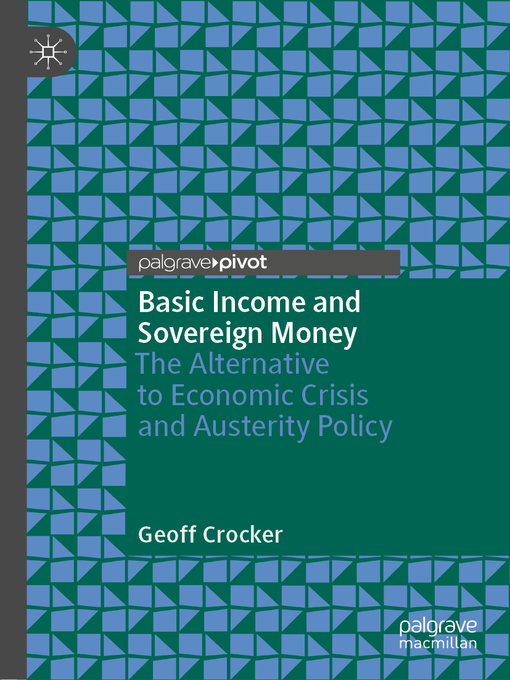"This is a radical, thought-provoking book, which brings together debates that are often kept separate about basic income and 'sovereign money'. You might not agree with all of it, but it makes big arguments and does so with constructive intent: that of proposing alternative ways of organising our economy and welfare states."
Nick Pearce, Director of The Institute for Policy Research, University of Bath, UK
"Though I have criticized modern money theory (MMT) for being too facile regarding the consequences of money financed deficits, I welcome this book's advocacy of a universal basic income. MMT proponents have focused on the problem of employment. Geoff Crocker wants to shift the focus to basic income, and I believe he is right. We are in an era of transition. Employment was the fundamental problem of the 20th century. Income distribution will be the fundamental problem of the 21st century. We must begin transitioning the policy discourse now. Incoming decades we will need both employment and basic income policy. It is good to have MMT advocates on board."
Thomas Palley, independent economist, Washington, DC, USA
Bernhard Neumärker, Götz Werner Professor of Economic Policy & Constitutional Economic Theory and Head of Freiburg Institute for Basic Income Studies (FRIBIS) at the University of Freiburg
